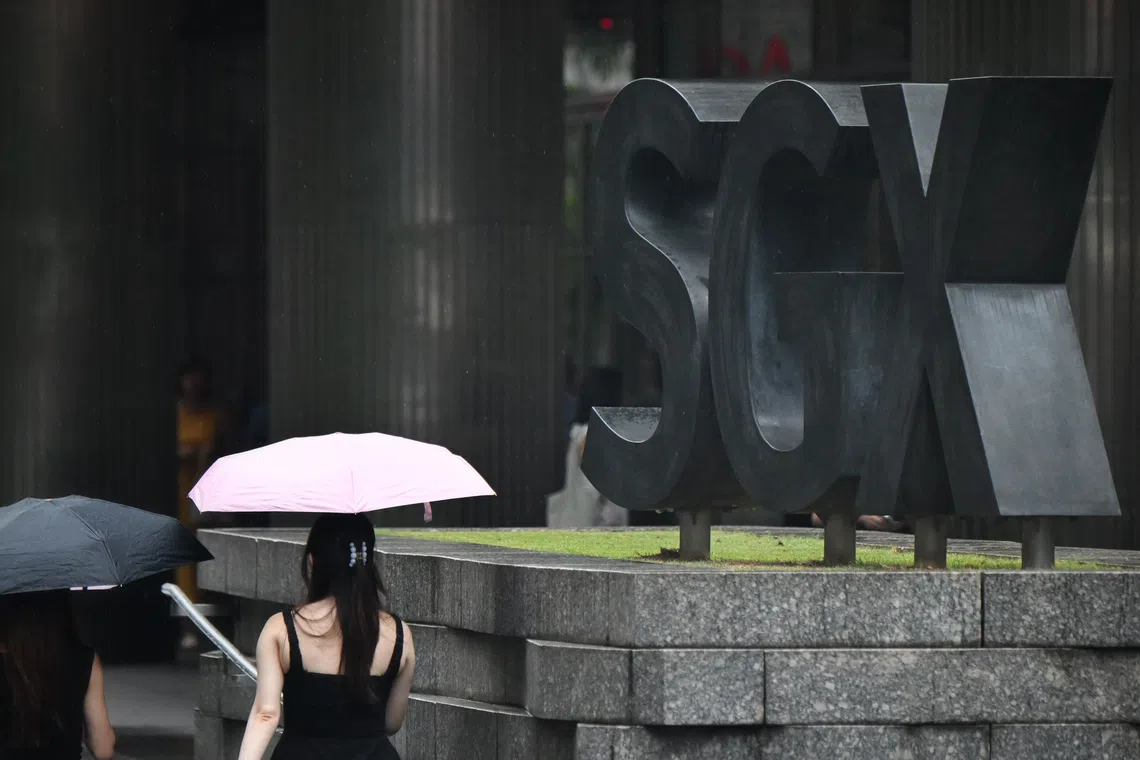Singapore shares fall amid mixed regional trading; STI down 0.2%
Sign up now: Get ST's newsletters delivered to your inbox

Across the broader market, losers outnumbered gainers 299 to 268, after two billion securities worth $1.4 billion changed hands.
ST PHOTO: KUA CHEE SIONG
- Singapore's Straits Times Index (STI) decreased by 0.2% to 4,428.62, with losers exceeding gainers in a mixed regional market.
- DFI Retail led gains at 3.5%, while local banks DBS, OCBC and UOB experienced slight losses. Frasers Centrepoint Trust was the worst performer.
- Julius Baer economist Sophie Altermatt said the US-China meeting pauses the trade war, easing concerns and shifting focus to reporting season.
AI generated
SINGAPORE - Singapore stocks ended lower on Oct 31, as the regional market closed mixed.
The benchmark Straits Times Index (STI) lost 0.2 per cent, or 8.82 points, to finish at 4,428.62. Meanwhile, the iEdge Singapore Next 50 Index fell 0.7 per cent, or 10.3 points, to 1,451.18.
Across the broader market, losers outnumbered gainers 299 to 268, after two billion securities worth $1.4 billion changed hands.
Key regional indexes were mixed. Hong Kong’s Hang Seng Index lost 1.4 per cent, Japan’s Nikkei 225 index rose 2.1 per cent, South Korea’s Kospi gained 0.5 per cent and the FTSE Bursa Malaysia KLCI fell 0.3 per cent.
Consumer group DFI Retail led the gainers on Singapore’s blue-chip index, rising 3.5 per cent, or 12 US cents, to end at US$3.51.
The local banks all ended lower. DBS Bank lost 0.1 per cent to finish at $53.93, OCBC Bank fell 0.1 per cent to $17.03 and UOB was down 0.1 per cent at $34.67.
The worst performer among STI constituents was Frasers Centrepoint Trust, falling 2.5 per cent, or six cents, to close at $2.34.
Ms Sophie Altermatt, economist at Julius Baer, said there is no clear agreement among investors on whether the recent meeting outcomes between US President Donald Trump and Chinese President Xi Jinping are worse or better than expected.
She noted that the meeting “effectively pauses the trade war” for a year, and it should help ease investors’ concern on trade risks temporarily.
“We believe the market will now look beyond US-China trade relations and focus on bottom-up evidence from the reporting season.” THE BUSINESS TIMES


